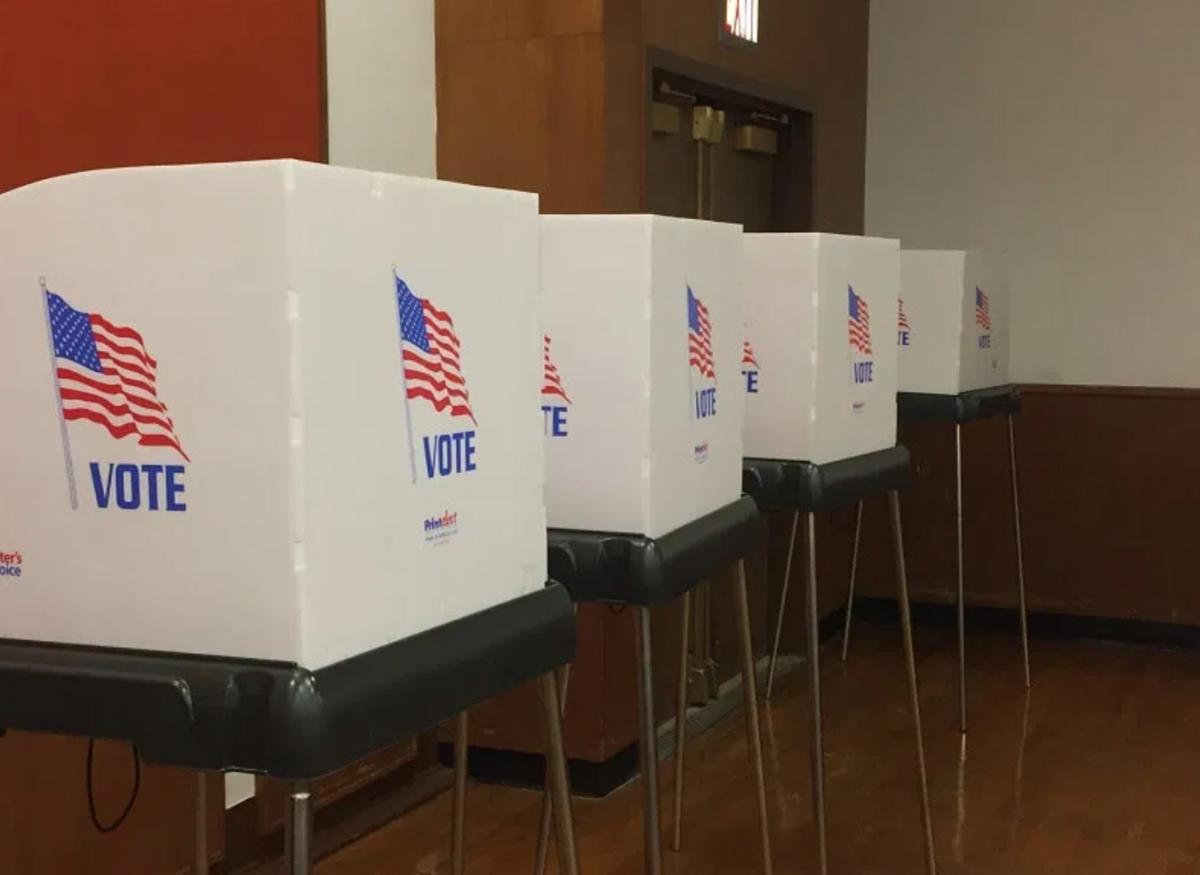Local election officials are scrambling to fill more than 13,000 election judge jobs that remain vacant after Gov. Lawrence J. Hogan Jr. (R) ordered a more traditional election for Nov. 3 despite health concerns in the COVID-19 pandemic.
About a third of election judge positions are unfilled across the state. Maryland Association of Election Officials President David Garreis said the number of vacancies before an election is unprecedented.
“In my 15 years of doing elections, I can’t remember us ever having a 35 percent vacancy rate,” said Garreis, who is also the deputy director of the Anne Arundel County Board of Elections.
Garreis added that older, more experienced election judges seem to be dropping out in greater numbers. He said many initially agreed to work the election, but dropped out after consulting with their families and friends.
For election day, 27,239 election judges are needed, and 9,654 — or 35% — of the jobs are vacant.
Early voting centers will need 12,831 election judges to run as normal, but 4,083 — or 31% — of the positions are vacant as of the state’s most recent update on July 30.
The risks of conducting an election in the midst of the coronavirus pandemic have led election judges in Maryland and across the country to call it quits. And owners of some private properties used as polling centers have declined to let their properties be used for the November 3 election.
One veteran Maryland poll worker called Hogan’s plan for an in-person election an “unnecessary suicide mission” and said she wouldn’t be working as an election judge in November.
Hogan wants every voting center and early voting location open for the November election, but local election boards have said that a lack of poll workers could mean they will have to consolidate polling centers.
Fewer election judges likely will mean fewer polling locations, David Garreis, president of the Maryland Association of Election Officials, warned members of the State Board of Elections.
“It’s becoming impossible to fill all of these vacancies,” Garreis told the State Board of Elections. “We’re not going to be able to make up for this election judge shortfall.”
Every registered voter will receive an application for a mail-in ballot under Hogan’s plan, instead of automatically receiving a mail-in ballot as they did in the state’s June 2 primary. Turnout was high for the primary, but many voters received late or incorrect ballots, and those who voted in person found long lines at the limited number of voting centers.
Health experts, voting rights advocates, Democratic lawmakers and local election officials have asked Hogan to reverse course and conduct the election largely by mail. They say his decision isn’t just a herculean lift for local boards of elections, but also limits choices for voters in the midst of a pandemic.
The governor has defended his plan for a more traditional election, arguing that he was following state law when he ordered voting centers open. In a WBAL interview last week, Hogan said he took an extra step by sending out ballot applications to every voter, and blasted criticism as “complete nonsense”.
“It’s not my plan for the election, it’s what state law requires,” Hogan said.
Common Cause Maryland Executive Director Joanne Antoine called Hogan’s defense “disingenuous” in a statement Friday and urged the governor to adopt a mostly mail-in election format. She noted that mailing voters ballot applications is expected to add about $5.6 million to election costs.
“There is still time for Governor Hogan to change his mind and direct the SBE to use the same election procedures as were used on April 28 and June 2,” Antoine said. “It would save at least $5.6 million and a lot of voter confusion.”
Meanwhile, the Hogan administration is encouraging state workers to fill the slew of poll worker vacancies.
In a letter to state employees last week, Maryland Department of Budget and Management Secretary David R. Brinkley offered holiday pay and 16 hours of administrative leave for state employees who volunteer as election judges, compared with the eight hours he has offered in the past.
Registered voters in Maryland who are physically and mentally able to work at least a 15-hour day and can speak, read and write English can sign up to be election judges.
People as young as 16 years old can register to vote and can sign up to be election judges, with a parent or guardian’s permission. But they cannot vote unless they will be 18 years old by the general election.
By Bennett Leckrone



Mary Tazewell says
Could you please provide an information link regarding a basic job description? Also, a link for anyone interested in applying to be an election judge and/or poll worker?
Ann Miller says
Very informative article, although it’s a shame they don’t include a link or instructions on how a person can apply to be a election judge. I used this link, hope the powers that be allow it:
https://elections.maryland.gov/get_involved/election_judges.html
I applied over a week ago, but received no response.